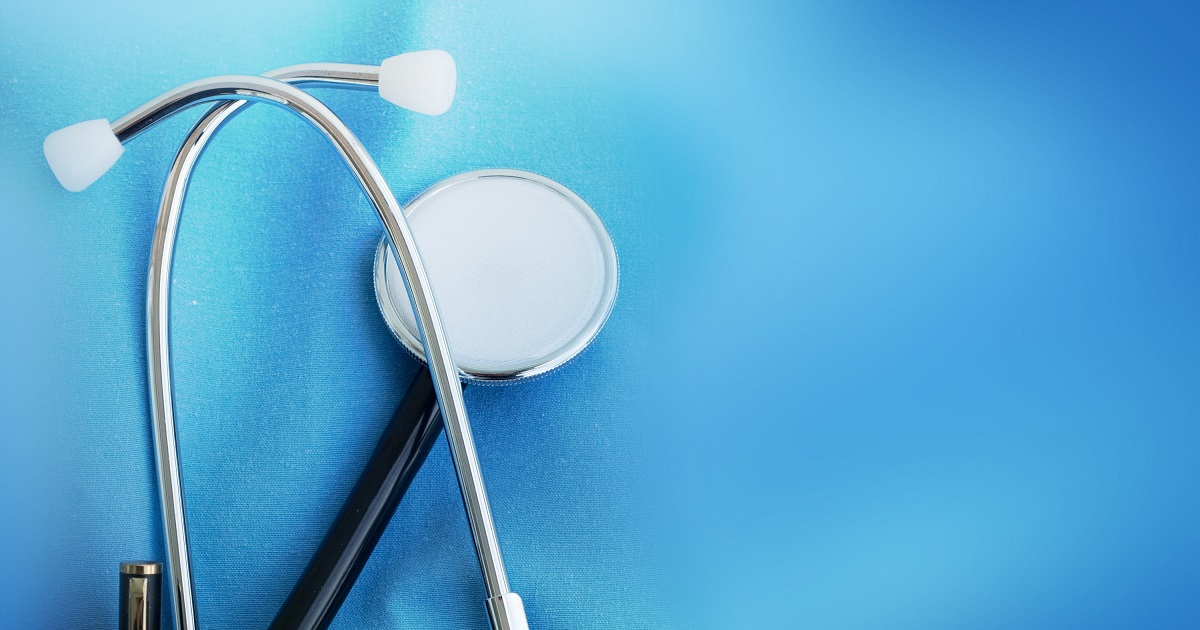
Health Technology, Digital Healthcare
Article | July 14, 2023
Introduction
The field of smart wearable devices has advanced significantly in recent years as a result of the advent of mobile medicine, the development of new technologies like smart sensing, and the increased penetration of personalized health concepts.
These Internet of Things (IoT)-based smart devices not only help people pursue a healthier lifestyle, but also offer a constant flow of healthcare data, which can be used for disease diagnosis and treatment, by actively recording, tracking, and monitoring metabolic status and physiological parameters. Wearable technologies have the potential to completely change the ways to monitor health behavior and are increasingly finding clinical implementation for patients with various types of diseases.
Wearable Technology: New Ways of Patient Monitoring
While wearable technology has demonstrated value in the fields of entertainment, fitness, and gaming, it is making inroads into the healthcare industry at a rapid pace. Increasing advancements in sensor technology and artificial intelligence (AI) are assisting millions of people in detecting and managing chronic health conditions and avoiding serious illnesses using devices that are as small as a patch the size of a penny or small enough to be worn on the wrist.
According to a study, nearly 320 million consumer health and wellness wearable devices are estimated to be shipped across the globe in 2022, and the number is likely to surpass 440 million units as a number of new devices come out and more healthcare providers start using them.
Most wearable devices, such as smartwatches, now include heart rate monitors, and some have FDA approval for detecting abnormalities such as atrial fibrillation, a major cause of stroke. As these devices become more intelligent, the percentage of patients and consumers who use them to manage chronic health conditions and diagnose symptoms of serious diseases is likely to rise.
This is expected to assist the sales of wearable devices in healthcare to exceed $195 billion by the end of 2027, presenting huge prospects for healthcare equipment providers and associated companies to benefit from the opportunity.
The Future of Wearable Technology in Healthcare
Though wearable technology is experiencing rapid growth, the field is still considered to be in its nascent stage, presenting massive remunerative prospects for the manufacturers of smart devices, especially in the healthcare industry.
Hence, companies of all kinds, from giants to upstarts, are emphasizing on investing and developing new wearable devices with new features and functionalities to meet the surging demand for wearables across healthcare in coming years.
Read More

Health Technology, AI
Article | July 18, 2023
It’s no secret now that healthcare is an in-demand field. Today, business leaders need modern and intelligent decision-making solutions for their customers and clients. They must also focus on the right investment areas and learn the tricks for investing, spending, and setting goals for revenue generation to accelerate business.
With continuous developments in the healthcare sector, integrating AI into processes can help increase ROI. Therefore, if you, like any other business leader, are looking for solutions to empower your services and products in the healthcare domain, this article will help you through AI’s ultimate use cases and churn out a higher ROI.
What’s with AI in Healthcare at Present?
AI’s role in healthcare is evolving and enhancing traditional business operations, particularly marketing. According to a study by IBM, 71% of customers expect real-time communication. Thus, global demand is fueling the rising adoption of AI marketing solutions.
The effects of AI in healthcare are evident. Gartner reports increased marketing efficiency and effectiveness (86%), improved decision-making (71%), better data analysis and new insights (79%). Global AI spending will rise from $450 million in 2019 to over $28 billion by 2024 is not surprising.
Similar and further studies are ongoing on various use cases of AI in healthcare at scale. What are the efficient use cases of AI that will help healthcare businesses boost their ROI? Let’s find out.
How is AI Applied in Healthcare?
The promising applications of AI in healthcare to improve outcomes are very intriguing. While there is still much to achieve in the AI-dependent healthcare business, there is sufficient potential that tech companies are willing to invest in AI-powered tools and solutions.
Let’s examine the potential examples of AI in healthcare to prepare and support business strategies accordingly and foster higher ROI generation.
Predictive Analytics
AI-based predictive analytics impacts a business by automating administrative tasks, predicting sales outcomes for a year, customers’ behavior and making strategies accordingly. According to a Forbes study, AI-based predictive analytics can save businesses $18 billion in tasks, expenses, and pricing.
To understand this, one example of using AI to automate admin tasks is a collaboration between the Cleveland Clinic and IBM. Cleveland Clinic uses IBM’s Watson to mine big data and provides personalized services for customers and clients on marketing deeds.
Some of the practical applications of AI and predictive analytics in healthcare are:
Monitoring market trends to maximize marketing efforts
Organizing datasets
Creating marketing campaigns tailored to each demographic-based client
Mining collective data for future decision-making
Fraud Prevention
AmerisourceBergen Corp detects fraud and misleading business operations through AI. A sales account team conducts audits with AI to detect usual lea and queries to prevent hefty expenses for businesses.
The example explains that implementing AI in your process will help detect any significant fraud attempts inside your business operation. This will help your business save huge expenditures.
Boost Sales
By putting down false leads, AI helps in maximizing sales numbers, resulting in significant ROI generation. For example, AI transforms data into personalized data, which reduces the cost of operations.
Chatbots
Most healthcare businesses leverage chatbots on their websites to engage more and more customers and boost engagement. In this way, businesses tend to gain multiple leads and convert them into clients by providing the best marketing solutions.
Chatbots are fruitful for AI start-ups in healthcare—small businesses can deploy AI to their websites. By doing so, they can save millions in administrative costs and attract numerous leads.
The most prominent examples of AI in healthcare hail from giant tech titans such as IBM, Amazon, and Microsoft. They are assisting healthcare providers with AI to create and deploy digital-human employees.
Segmentation of Marketing Targets
Is your target audience not responding to your marketing campaigns (for example, by not clicking a link, subscribing or unsubscribing to a newsletter, or not registering for a medical event)? If that's the case, how should you go ahead?
Using AI-based tools allows your marketing to easily identify target behaviors and reactions based on the type of marketing actions to be carried out. Analyzing these actions can help segment targets based on your company's marketing objectives.
The most significant development took place in April 2022, when Amazon Alexa became fully HIPAA compliant. It works with health developers and service providers that manage protected information for customers.
AI Leads to Data Modernization
It’s all about the data—not any data!
There’s a precise association between AI and data management, resulting in data modernization. According to a Cognizant research study, healthcare leaders have made significant progress in modernizing their data. In contrast, most upcoming businesses are expecting to do so by 2024.
The maximum acceleration of AI in modernizing data will be seen in the manufacturing and marketing of healthcare products and services, respectively. It is because AI helps to churn data easily. The accessibility of data, in particular, becomes simpler with automation than doing it manually, which generates a massive amount of data. Such effects of AI in healthcare can be one of the prime reasons for the higher ROI of your business in the future.
“There has never been a greater need for skilled analytic talent in health care. Because AI is becoming more strategic, organizations must ensure access to this skill set, either by growing their analytic teams or seeking out experienced partners."
Steve Griffiths, CEO of Optum Enterprise Analytics
AI Expenditure is on the Rise
McKinsey says that by 2025, the use of AI in healthcare will be widespread, resulting in significant expenditure by global healthcare leaders.
AI is a significant concern for healthcare decision-makers, investors, and innovators as customers extensively engage and react to AI-powered services and solutions. AI is constantly bringing improvements to almost all processes, including cost savings, management of services and products, and monitoring of multiple operations. Even small businesses in the healthcare industry are proactively investing in AI applications to match steps with the current wave of innovation in healthcare services.
Accelerate ROI Using AI
AI in healthcare is becoming one of the prime responsible technologies for accelerating ROI. Technology can eradicate multiple business growth challenges. Let’s find out how.
Enhanced Performance
As previously stated, use cases of AI in healthcare can relieve stress on employees. This would allow them to devote their time to more value-added marketing activities to churn more ROI.
Emphasize Cost-Effectiveness
Most of the businesses associated with healthcare are concerned about the costs involved. With AI, they now develop policies to spend less on non-essential activities and necessitate profit-oriented actions.
"We believe in the potential of AI to deliver insights and operational efficiencies that unlock better health-care performance."
Robert Musslewhite, CEO at OptumInsight
Frequently Asked Questions
How is AI used in healthcare?
AI in healthcare automates and predicts processes by analyzing data throughout. It is used to predict potential customers, improve business management workflows, and manufacture medical products.
How does AI drive growth in the healthcare industry?
AI drives business growth by improving the ability to understand better day-to-day customer patterns and needs based on services and products.
How is AI changing the Healthcare industry?
AI applications in healthcare have demonstrated their potential to improve analytics and data management and assist service providers in making timely medical decisions.
Read More

Digital Healthcare
Article | November 29, 2023
The recent COVID-19 pandemic in 2020 has changed the way the healthcare industry has been processing. It has transformed the healthcare sector digitally. Healthcare providers have changed services with the latest healthcare technology trends in digital and virtual platforms. Every healthcare provider is updating services by adopting digital advancements in their practices to increase their capacity to engage the maximum number of patients. Still more advancements and updates are needed to address many challenges in the industry such as cybersecurity, effective payment model, telehealth, patient experience, invoicing and payment processing, and big data.
Last year, wearable devices in the healthcare industry were quite popular with the patients. These devices have helped patients be aware of various healthcare metrics. Due to the introduction of the 5G internet, the wearable devices market is expected to have huge scope in 2021. Healthcare technology trends, such as the use of a digital dashboard scheduler or chatbots as a digital assistant, help hospitals and other healthcare organizations to better track appointments, contacts, demography, and make changes more efficiently as these are practical measures for modifying and monitoring patient activities.
Telemedicine, using video conferencing, digital monitoring, etc. have also been very helpful in containing the spread of the pandemic. It has made healthcare accessible for everyone, especially in rural areas. For remote patient care systems, telehealth and teleradiology reporting are very important technological upgrades. Healthcare technology trends of 2020, including patient portals, mobile health applications, remote care via telehealth, and wearable devices, played a major role in tackling the global pandemic situation. Artificial intelligence (AI), Machine Learning (ML), and Robotic Process Automation (RPA) also played a vital part in handling the situation. All the above-mentioned are COVID-19 fueled healthcare technology trends in 2020, which are expected to continue in coming years too.
Here is a detailed look into the healthcare technology trends, which are expected to address the new challenges and revolutionize the healthcare industry in 2021.
Technology Trends that will Revolutionize the Medical Industry in 2021
The digital transformation of the healthcare industry has been fast-forwarded by COVID-19 in 2020. Recognizing the healthcare technology trends, many healthcare providers have readily shifted their operations to the latest trending technologies. Others are also looking forward to setting their operations according to the upcoming trends.
It seems like almost all the healthcare providers genuinely wanted to transform their operating system to engage the maximum number of patients, due to the healthcare technology trends set after the hardest crisis in the healthcare industry virtual reality healthcare. So, before planning your healthcare strategy for 2021, don’t miss to include these healthcare technology trends of 2021 to achieve better healthcare outcomes and stand one step ahead of your competitors.
Patient Engagement Technology
One of the most competitive healthcare technology trends in 2021 will be patient engagement technology. There are countless technologies available in the market for patient engagement, evaluation, and campaigning. Due to high competition in the market, these tools are priced competitively.
Many healthcare organizations have started empowering themselves by achieving consistency in patient engagement with the help of available tools in the market. This also helps them achieve increased ROI. The healthcare technology trends, including remote care via telehealth, patient portals, wearable devices, mobile health applications, and many more, empower patients and increase patient engagement.
Hospitals and other healthcare organizations need to improve patient experience along with engagement. The entire road to patient satisfaction and experience can be changed with these healthcare technology trends in 2021.
Telemedicine
As telemedicine revolutionized the entire healthcare technology in 2020 by playing a vital role in containing the COVID-19 pandemic, it is expected to be one of the healthcare technology trends in 2021 too.
Using the advancement, it possible for healthcare professionals to diagnose and treat any number of patients remotely through phone calls, mobile apps, emails, and even through video calls. Telemedicine can provide patients with better access to all healthcare services, drive up efficiency and revenue, and lower healthcare costs.
Augmented Reality (AR) and Virtual Reality (VR)
The arrival of both AR and VR solutions has made way to witness meaningful advancements in the healthcare industry and technology. Advancements that could only be dreamt of a decade back, have become realities and been implemented. These two healthcare technology trends offer some serious promise to the world of healthcare, including educating patients before a treatment procedure.
AR offers one of the latest and most spontaneous options in the healthcare industry. AR allows doctors and surgeons to experience 3D effects on real-world scenes. This healthcare technology trend permits the professionals to stay grounded on actual procedures with access to all the data through various other emerging technologies. This makes doctors compare data, in the virtual world, to understand what the patient is experiencing and make a flawless diagnosis and suggest healthcare procedures.
Chatbots
It is either impossible or expensive for patients to get answers from specialists for their routine queries. But, chatbots make it easier and comfortable for healthcare service providers to answer questions of patients cost-effectively. Though chatbots are currently in the experimental phase to be used in healthcare solutions, they are most likely to have the necessary access to clinical scenarios by the beginning of 2021. It is expected to be one of the progressive healthcare technology trends in 2021.
As a digital assistant, chatbots allow healthcare providers to keep a track of contacts and appointments and make changes, when necessary. Chatbots are going to revolutionize the clinical processes and business, providing practical as well as clear measures for modifying and monitoring patient activities.
Big Data and 5G
5G is about to sweep the world in the coming months. With the extraordinary intensification in transmission bandwidth of 5G, users will construct a huge amount of data. With 5G, the Internet of Things (IoT) will be used largely to send and receive data. In the next three years, the global wearables market is expected to reach an annual turnover of US$52 billion. This can be attributed to the introduction of 5G wireless technology, one of the healthcare technology trends.
Healthcare providers will have the access to a huge amount of accurate data when data from wearable devices and other initiatives are added together. This is going to change the way providers collect data and the way doctors and patients communicate.
Thus, while you plan to upgrade your healthcare technology for 2021, don’t forget that you will be receiving a huge amount of data from patients, which can be attributed to one of the important healthcare technology trends of 2021, big data and 5G.
Artificial Intelligence
Artificial Intelligence (AI), one of the prominent healthcare technology trends of 2021, is developed to mimic human thought processes. GNS Healthcare AI system and IBM Watson are some of the most popular examples for the active use of AI in the healthcare process. This trend is going to rule healthcare processes and revolutionize medical care in 2021.
To improve healthcare professionals’ and hospitals’ care delivery to patients, Google’s DeepMind has built mobile apps and AI. The AI healthcare market is expected to reach US$7988.8 million in 2022 from US$667.1 million in 2016. This healthcare technology trend is expected to take the healthcare industry to a new realm by increasing patient engagement and experience in 2021.
Cloud Computing
Cloud computing is one of the major healthcare technology trends in 2021 that is going to change the industry. Attributed to the recent development of various healthcare technology trends, the cloud computing market is expected to reach US$35 billion in 2022 from US$20.2 billion in 2017.
This tremendous growth is attributed to the need of storing a high volume of data for healthcare organizations at a lower cost. In the healthcare domain, the main use of big data is in Electronic Health Record systems (EHR). It allows secure storage of various digital documentation such as demographics, medical history, diagnoses, and laboratory results. Cloud computing, an important healthcare technology trend, is expected to make the healthcare process smooth and flawless in 2021.
The biggest trend of 2021 in the healthcare industry is the holistic technological transformation of healthcare firms. Whether AI, ML, RPA, telemedicine, big data, chatbots, or cloud computing, almost everything related to data management and monitoring will peak in 2021. These healthcare technology trends will rule healthcare in 2021. Moreover, targeted and personalized care for critical diseases is expected to be another trend in the coming years.
Frequently Asked Questions
What are the technology trends in healthcare?
Trending healthcare technologies are AI, ML, RPA, cloud computing, big data, chatbots, telemedicine, etc. AI, the life-changing technology is going to completely transform the healthcare industry in the coming years starting from 2021.
What are the most important trends in healthcare technology?
Augmented and virtual reality, Artificial Intelligence, the Internet of Medical Things, Machine Learning, chatbots, cloud computing, telemedicine, etc. are the most important technology trends in the healthcare industry.
What are the current technological trends in healthcare?
Artificial Intelligence (AI) and Machine Learning (ML), Internet of Medical Things (IoMT), Augmented Reality (AR) and Virtual Reality (VR), Electronic Health Records (EHR), Blockchain and data security, health-tracking apps, therapeutic apps, and telehealth are the major current technological trends in the healthcare industry.
Read More

Health Technology, Digital Healthcare, Medical Devices
Article | December 7, 2022
Contents
1. Alexa, Are You There?
2. Digital Assistants-Cum-Doctor-Assistants
3. Toward An AI-Friendly Life!
1. Alexa, Are You There?
If Siri, Alexa, Google Now, or Cortana are your friends, you do not need any special introduction for today’s topic! This is because these digital assistants have become part and parcel of our lives; from completing our minimal tasks to helping us solve our problems, they make our day-to-day life simpler and more manageable. Popularly called AI, Artificial Intelligence is the simulation of human intelligence processes by machines. Similarly, Machine Learning, also called ML, is the capability of a machine to imitate intelligent human behavior.
2. Digital Assistants-cum-Doctor Assistants
The unpredictable pandemic years, which took thousands of lives, depict the rise of complexities in the healthcare industry. To deal with such cases in the future tactfully, the healthcare segment needs to be proactive and implement advanced technologies to detect, resolve, and prevent untimely death. Modern technologies such as Artificial Intelligence and Machine Learning help the medical fraternity perform tasks usually done by humans quickly and accurately, saving much time that can be utilized elsewhere.
Let’s take a quick tour of how AI and ML can boost the healthcare industry:
Artificial Intelligence can broadly scan patient databases or consult patients via a chatbot or online support system to understand their symptoms, send data to doctors, and get real-time diagnoses and prescribed medicines.
Machine Learning, a subset of AI, can replace traditional processes with a supervised one, as in, a patient can be treated based on similar symptoms and treatment of other patients. The process requires a quick scanning of the database, which can be time-consuming if done by human effort.
Taking technology by storm, patients suffering from neurological disorders can be treated via Brain-Computer Interfaces (BCI) backed by AI. With the help of this technology, normal bodily functions, such as the ability to move, speak or react, can be restored. It can also assist doctors in treating patients with strokes, locked-in syndrome, etc.The healthcare segment is revolutionizing, as sensitive operations such as heart surgery are being performed with robotic precision and control with AI-based algorithms. For this purpose, precision machine learning processes are being used to train robots and improve accuracy.
AI can also help in digital pathology. Instead of placing separate slides or tissue blocks and observing them manually, pathologists can do it via AI, which can help analyze digital slides using image analysis and machine learning.
3. Toward an AI-friendly Life!
If you never forget to wear a smartwatch, track daily steps, get water intake notifications, eat mindfully, and consistently monitor pulse rates, then you are already AI-friendly! You have successfully incorporated AI into your life and taken the first step towarda healthy life!
Read More